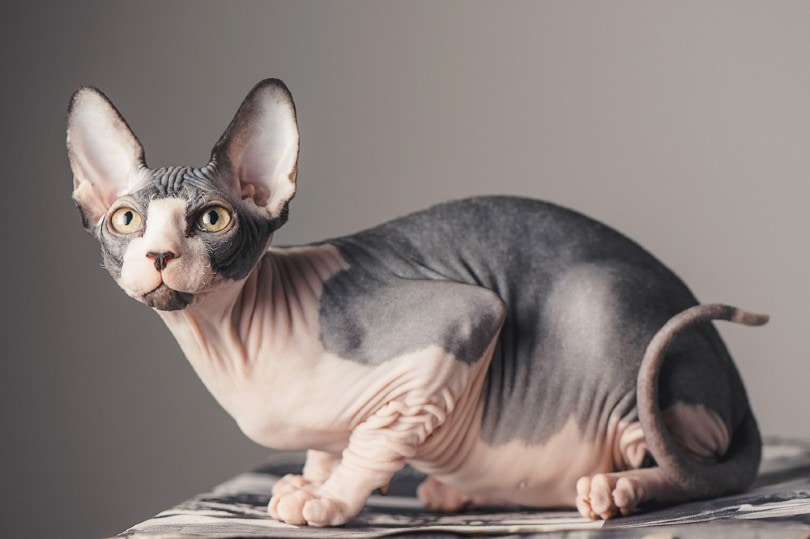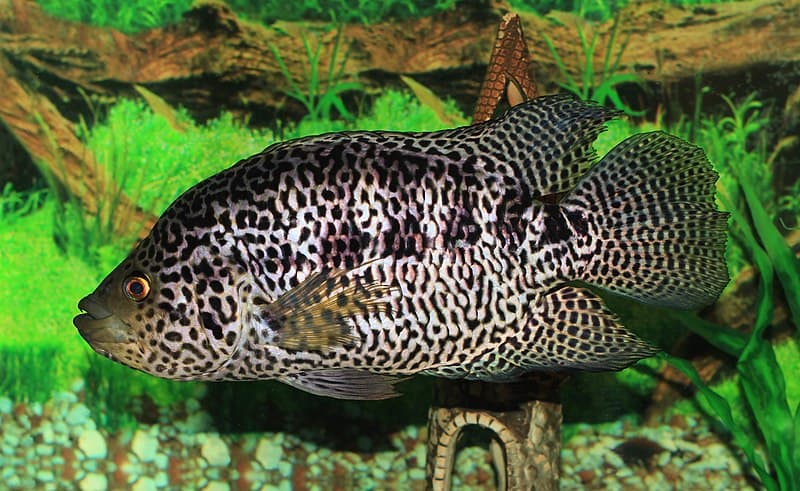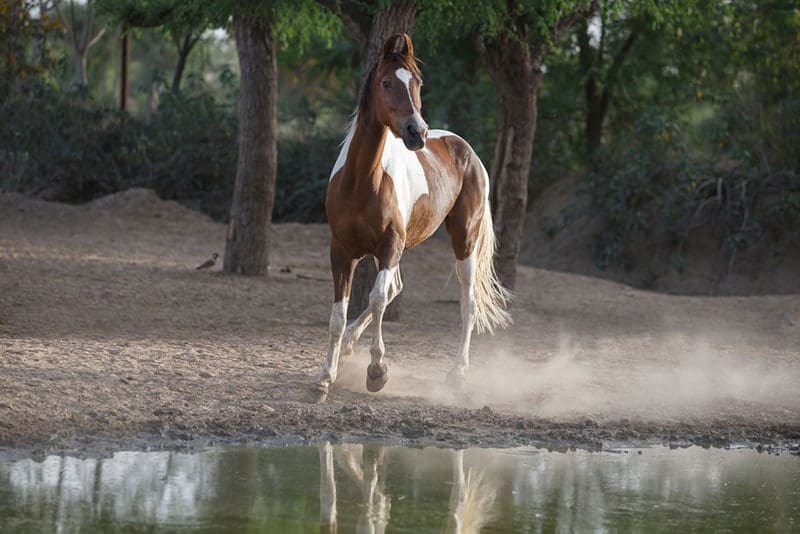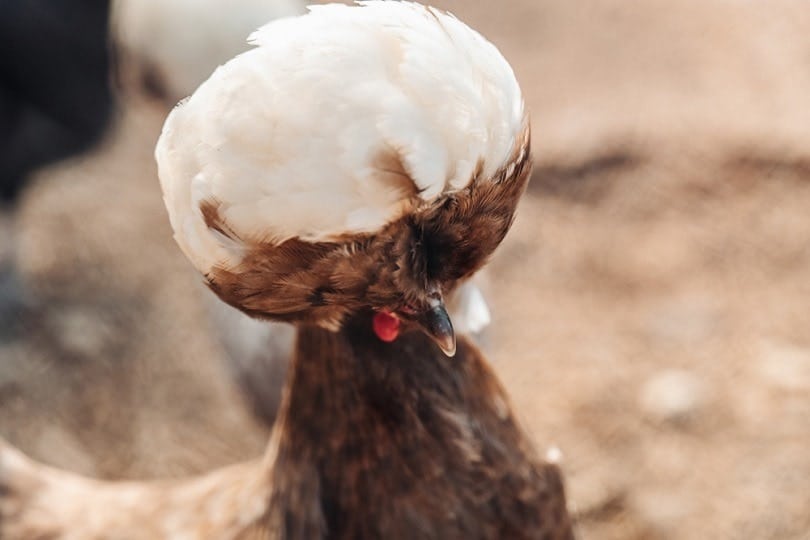While cats can be vocal, it is undeniable that body language accounts for the bulk of their communication. They especially love using their tails to express a wide range of emotions, which is why experienced pet owners can tell the mood their cats are in simply by observing their tails.
Most people love it when cats curl their tails, which typically means they’re happy or content. It comes as no surprise that breeds with curly tails are at the top of the demand list.
Unfortunately, only a few breeds have a permanently curled tail. In fact, the American Ringtail is the only pure breed with a permanently curled tail, and they were bred specifically for that trait.
In other cats, the curly tail trait is a matter of luck. However, some breeds have been observed to be more likely to have this trait than others.

Top 10 Cat Breeds With Curly Tails
1. The American Ringtail
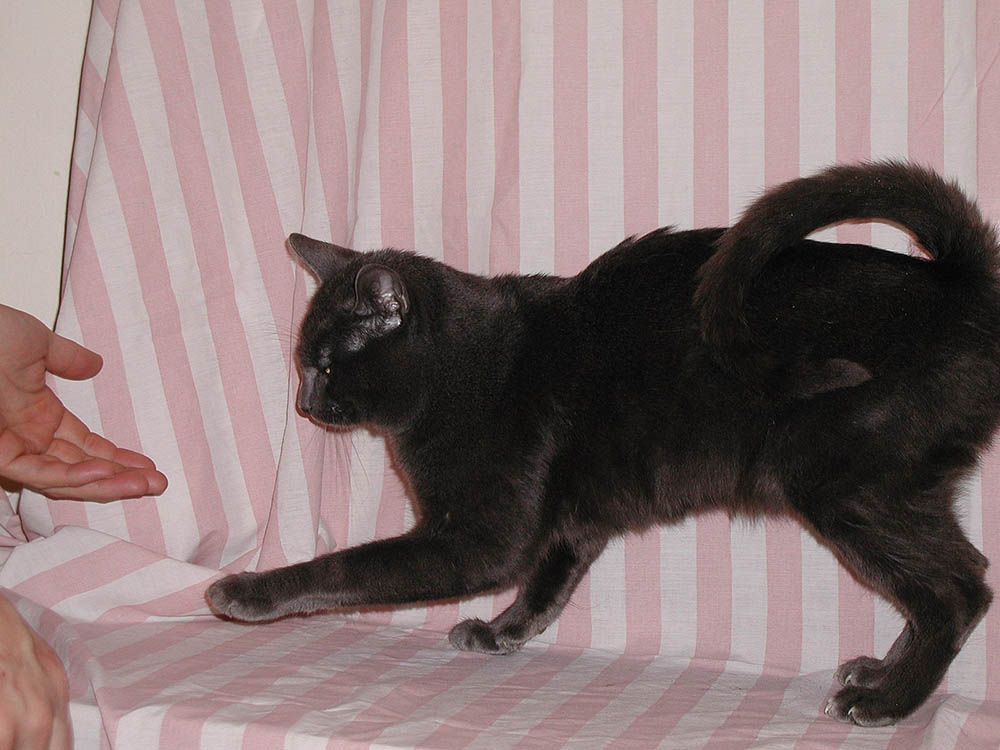
If you want the assurance your cat will have a curly tail, look no further than the American Ringtail. Also known as the Ringtail Sing-a-Ling, the American Ringtail is relatively new, originating from a rescued kitten called Solomon in 1998 in California. The rescuer and breed founder, Susan Manley, explained that Solomon’s tail began curling over his back unnaturally when he was just 4 weeks old.
In 1999, Manley started breeding Solomon to create a breed with his distinctive curly tail. She used various breeds, including Domestic Shorthairs and Ragdolls, resulting in the American Ringtail.
Nevertheless, the American Ringtail remains a rare breed, explaining why the price of the kittens can exceed $1,000.
American Ringtails are born with straight tails, curling naturally as they age.
2. Devon Rex
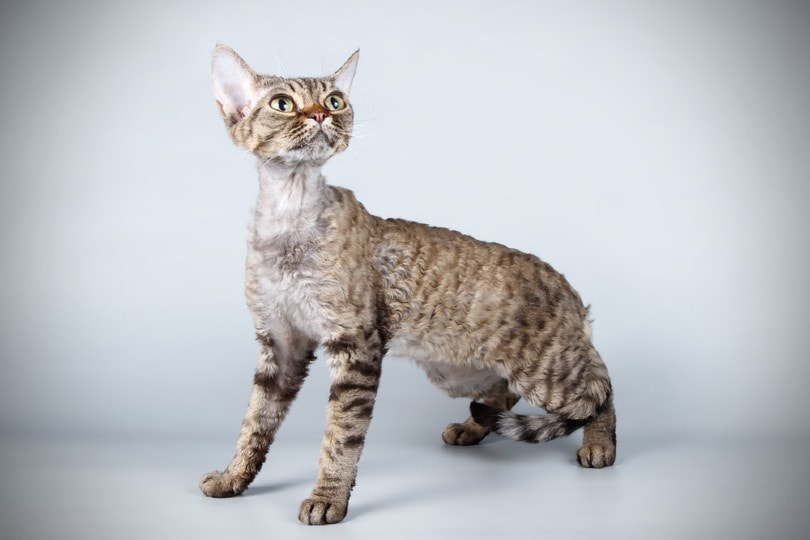
While the Devon Rex’s trademark attributes are oversized ears, short curly whiskers, and a unique wavy coat, some have curled tails. However, you are more likely to find the trait in a Devon Rex mix than in a pure Devon Rex.
Devon Rexes are incredibly intelligent but mischievous. They are a good fit for people looking for a friendly, fun-loving kitty.
3. Russian Blue
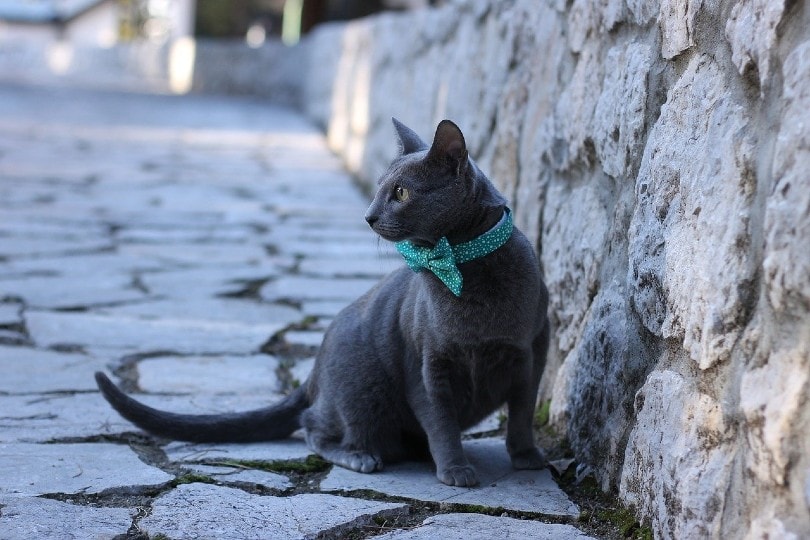
Native to Northern Russia, the Russian Blue is a striking feline that sports an elegant blue-gray coat. However, some Russian Blues have white coats.
Another trademark attribute of the Russian Blue is their “smile,” which results from their mouth’s natural shape. Fortunately, the Russian Blue’s personality matches their natural smile, and they are one of the sweetest breeds around. Russian Blues can become attached to their owners and sulk whenever they are left alone.
While a curly tail is not a signature attribute of the Russian Blue, some individuals have been observed to have naturally curling tails.
4. Siamese
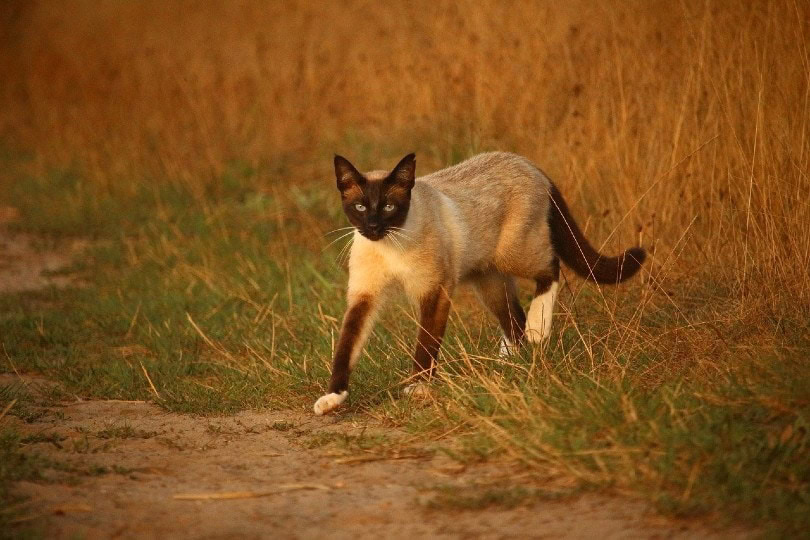
The Siamese is renowned for their overly vocal nature and crossed eyes. Interestingly, a good number of Siamese kitties have curly tails. Legend has it that Siamese cats became cross-eyed and curly-tailed after a pair of them were tasked with watching over a golden goblet belonging to Buddha.
Apparently, they stared at the goblet for so long that their eyes crossed. Then, they wrapped their tails around the goblet for extra protection, resulting in a curled tail. In the past, Siamese cats used to have curled tails. Unfortunately, some people did not like the curly tail, deeming it crooked. As a result, more breeders began breeding out the curly tail trait out of the Siamese, which is why most Siamese cats today do not have them.
5. Sphynx
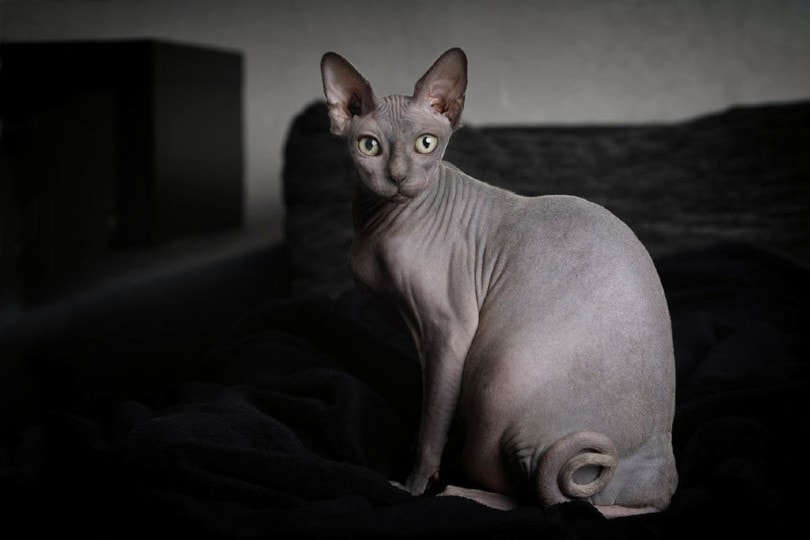
With their hairless body, the Sphynx is a unique breed. Sphynx cats are such a hit with people because of their affectionate nature and love for cuddling. Experts suggest that the Sphynx’s cuddly nature can be attributed to the cat’s need for a secondary source of warmth.
Unfortunately, they are susceptible to many health issues and require a greater level of care. They have the curly tail gene, but some Sphynx cats have straight tails.
6. Bengal
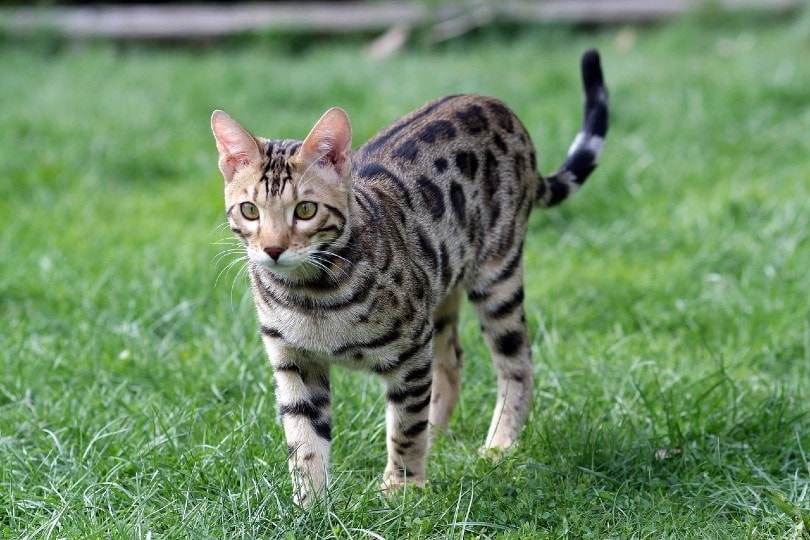
The Bengal cat has arguably the most stunning coat of any domesticated breed. Their coat is marked with gorgeous marbled or rosette patterns akin to a leopard or cheetah. While the Bengal is not a wild cat, one of their parents, the Asian Leopard Cat, is.
This breed resulted from crossing the Asian Leopard Cat with various domestic cats, including the Egyptian Mau, in the United States. Bengals have somewhat wild personalities and are energetic, confident, and stoic.
While most Bengals have straight tails, a few individuals have a curly tail.
7. Ragdoll
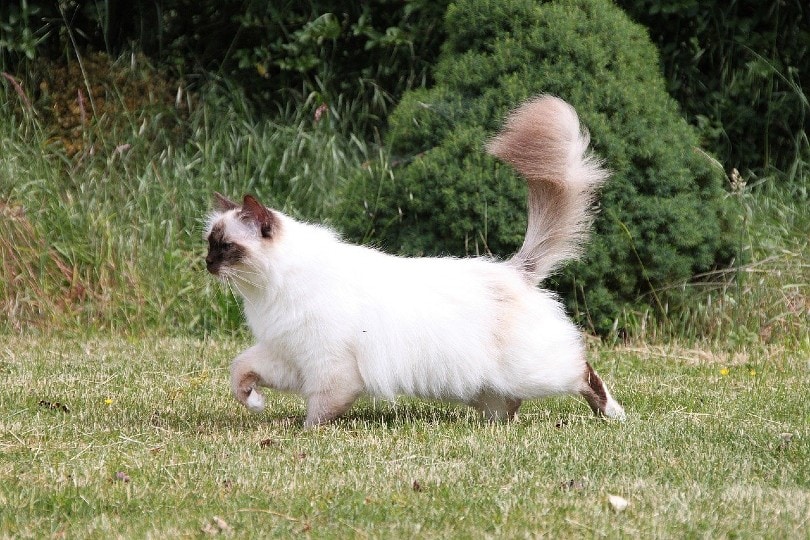
Most cats are not big fans of being held for extended periods. However, that is not the case with the Ragdoll. This is the ultimate cuddly cat. The Ragdoll will love being in your lap or arms and goes limp once you pick them up. They are sweet-natured and are one of the largest domestic breeds.
Some Ragdolls sport curled tails. However, due to the broader gene pool, the trait is more likely to surface in Ragdoll mixes.
8. Scottish Fold
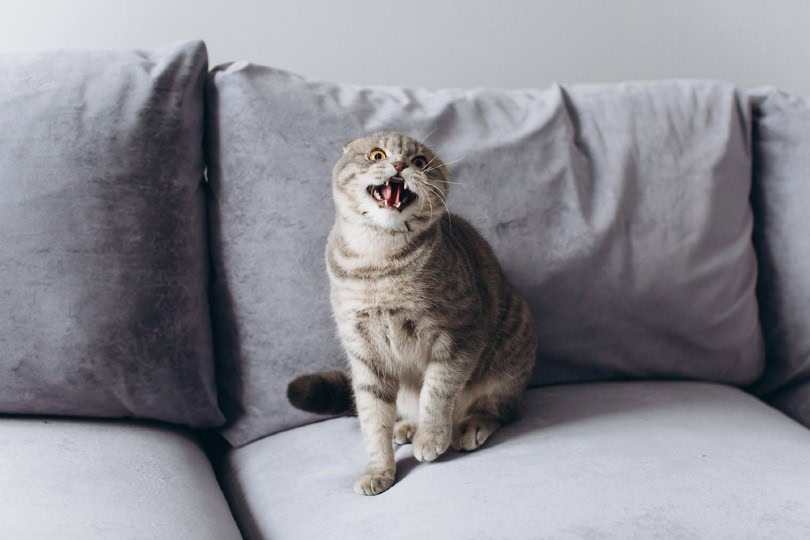
The Scottish Fold is an incredibly sweet-tempered and expressive breed. However, the cat’s trademark feature is their distinctive folded ears. The Scottish Fold’s ears are not the only parts of their anatomy that curl, as a few individuals come with curly tails.
9. Singapura
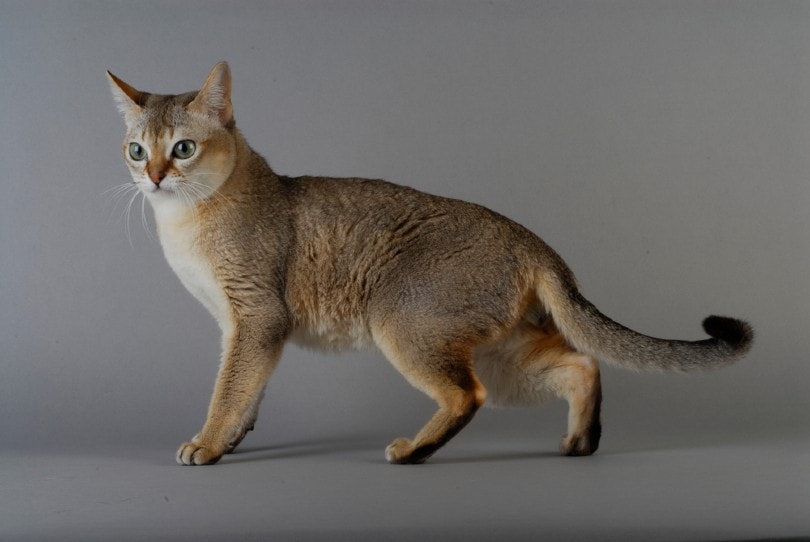
As you can probably tell from the name, the Singapura is native to Singapore. This feline is among the smallest house cats in the world, and most weigh between 4 and 8 pounds as adults.
Despite being so tiny, Singapura cats have larger-than-life personalities, thriving when they are the center of attention. As descendants of the Siamese, some Singapura cats have curly tails.
10. Ocicat
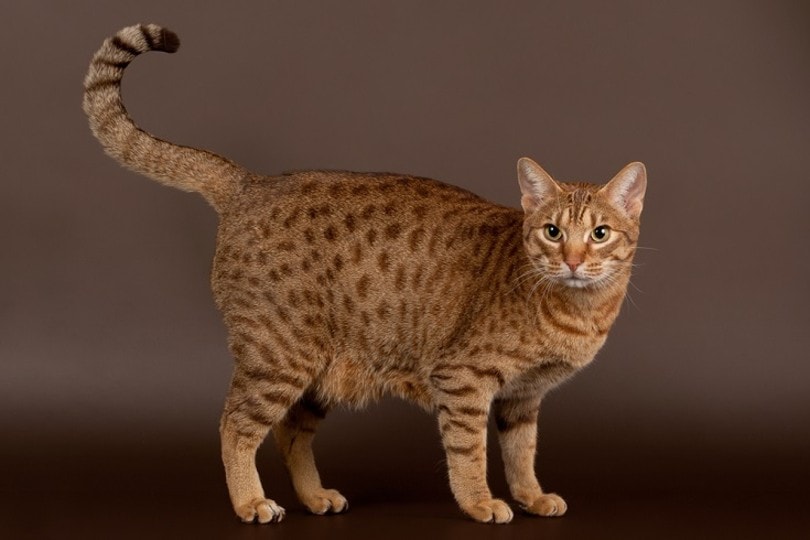
The Ocicat is a striking feline that resembles a Bengal cat in their coat pattern and athleticism. They were developed by crossing an Abyssinian with a Siamese, and some Ocicats have curly tails.

Final Thoughts
The curly tail trait is thought to be a recessive gene. For a cat to have a curly tail, they must have two copies of the curly tail gene. Therefore, crossing cat breeds with this gene will increase your chances of getting a kitten with a tail that curls naturally.
The American Ringtail is the only breed with a naturally occurring curly tail. As for the other breeds on our list, it’s all a matter of chance.
Featured Image Credit: Yuryi Oleinikov, Shutterstock
